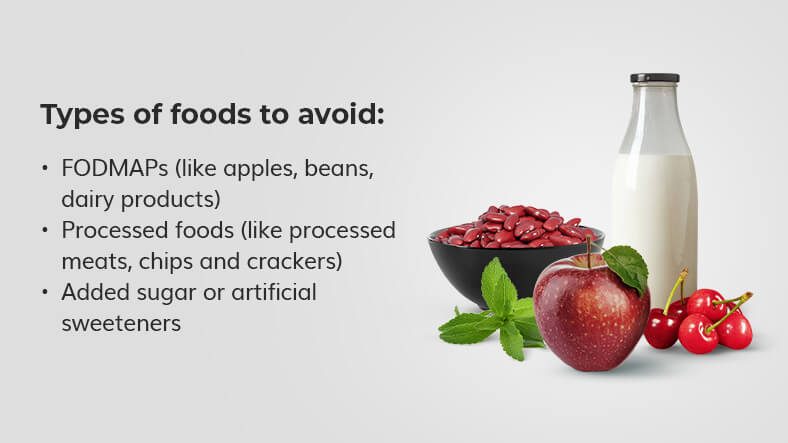How to fix leaky gut syndrome – A gut health guide

I want to help you live healthy lives in every way! I have had my own struggles with health problems (including hypothyroidism and gut problems), and I understand how difficult health conditions can be both physically and emotionally!
Because of this, I’m always happy to offer advice to any girls who reach out to me.
Several of you have asked me to write more about leaky gut syndrome. It’s a condition that can be so difficult to deal with. Luckily, lifestyle choices can improve your gut health and the symptoms of leaky gut syndrome. :)
WHAT IS LEAKY GUT?
The gastrointestinal (GI) tract is a group of connected organs that run from the top to the bottom of your torso. The GI system includes:
- the esophagus
- the stomach
- the small and large intestines
The intestinal wall is covered in small openings, and these allow water and nutrients to pass through the organs into the bloodstream. When you have leaky gut syndrome, these small openings expand. The food particles, bacteria, and toxins found in your GI system enter the bloodstream.
Leaky gut syndrome is caused by an imbalance in gut microbiota, and this imbalance can trigger the body’s immune response. This causes inflammation and increases intestinal permeability (or wider holes in the intestinal wall).
Medical professionals aren’t sure if leaky gut is a symptom or a cause of other gastrointestinal conditions. However, it is connected to health problems like:
- irritable bowel syndrome
- Crohn’s disease
- celiac disease
- chronic liver disease
- diabetes
- food allergies and sensitivities
- polycystic ovary syndrome
WHO HAS LEAKY GUT?
Nobody has a leak-free gut! The intestinal wall should have small holes, and the size of these holes will vary from person to person. A person’s genetics determine the size of these holes to a certain extent. In other words, some people are just naturally more prone to having larger holes in the intestinal wall than other people are.
However, genetics aren’t the only cause of leaky gut syndrome. Research suggests that a diet high in sugar and low in fiber causes inflammation that can lead to leaky gut syndrome. Also, people with autoimmune diseases and other health conditions might be more likely to have leaky gut syndrome.
Finally, some medical professionals believe that leaky gut syndrome is associated with problems throughout the body, like acne, chronic fatigue syndrome, asthma, acne, and obesity. But researchers need to study these connections more.
WHAT ARE THE SYMPTOMS OF LEAKY GUT?

Leaky gut syndrome can mimic symptoms of other common health conditions, which can make diagnosis tricky.
People who experience leaky gut syndrome may experience the following symptoms:
- chronic stomach upset, including diarrhea, constipation, or bloating
- headaches
- difficulty concentrating and confusion
- fatigue
- widespread inflammation
- joint pain
- problems with skin inflammation, such as acne, rashes, and eczema
If you experience leaky gut syndrome as a symptom of an underlying disease, you might experience other symptoms too. For instance, somebody who has leaky gut syndrome because of their irritable bowel syndrome might experience the following:
- Abdominal pain
- Weight loss
- Fatigue
- Fevers
- Bloody stools
- Stools with mucus
- Severe diarrhea
WHAT CAUSES LEAKY GUT?
As I’ve mentioned, medical professionals and researchers are still trying to better understand leaky gut syndrome.
However, medical professionals have a better understanding of increased intestinal permeability (the increased sizes of the holes on the intestinal wall). It occurs in diseases like Celiac’s disease and type 1 diabetes.
A protein called zonulin regulates intestinal permeability. In fact, research has shown that having higher levels of this protein is correlated with having increased intestinal permeability.
Certain types of bacteria and gluten can help raise zonulin levels in some people. People who have Celiac’s disease have increased intenstinal permeability when they consume gluten. However, researchers have had mixed results when they study the link between gluten and leaky gut syndrome in people who don’t have Celiac’s disease.
Other factors besides zonulin levels can also contribute to leaky gut syndrome. These include:
- Higher inflammatory markers
- Autoimmune diseases, such as lupus
- Long-term use of anti-inflammatory drugs like aspirin and ibuprofen
- Low levels of healthy gut bacteria
- Poor nutrition, which can increase inflammation and reduce healthy gut bacteria
- Alcohol consumption
- Stress

HOW TO IMPROVE YOUR GUT HEALTH
Improving your gut health should help you improve your leaky gut syndrome. To do this, consider:
- Taking a probiotic. Probiotics can help increase good bacteria in your gut.
- Eating foods that are full of fiber, such as whole grains and vegetables.
- Avoiding foods that cause inflammation. Some foods, like sugar, cause everybody inflammation. However, you might have specific food intolerances to avoid as well.
- Avoiding using medications, including anti-inflammatory medicines and antibiotics, that you don’t need.
- Prioritizing getting enough sleep, because this helps your body repair itself. Getting enough sleep also helps to distribute your healthy gut bacteria.
- Exercising consistently.
- Getting tested for celiac disease. This might help you identify if you need additional medical intervention, and it will let you know if you need to stop eating gluten.
TYPES OF FOOD THAT WILL HELP IMPROVE YOUR GUT HEALTH

In general, assuming you don’t have any allergies or dietary intolerances, eating a healthy diet that includes healthy fats, protein, and fiber will help your gut stay healthy.
However, there are specific foods that you can eat to help your gut get healthier. Some of the best foods for healing your gut are:
- Probiotic yogurt
- Fermented foods, like kimchi, kefir, sauerkraut, and miso
- Grains such as oats, corn, rice, and quinoa (remember, leaky gut syndrome is associated with Celiac’s disease, so you might want to be careful with products with gluten)
- Frutis and vegetables
- Nuts and seeds
- Lactose-free dairy products or plant-based milk alternatives
TYPES OF FOOD TO AVOID

People who are experiencing problems with their gastrointestinal system should consider avoiding foods that are difficult to digest. These are typically classified as FODMAPs, which is short for fermentable oligo-, di-, mono-saccharides and polyols. No wonder we have a nickname for it! :)
FODMAPs are types of carbohydrates that bacteria break down in your gut. This breakdown process is difficult, and it contributes to gas.
Because of this, many people who are seeking to improve their gut health will adopt a low-FODMAP diet. Others attempt elimination diets to see which specific FODMAPs trigger their problems.
When I struggled with gut health, I was told to go on a FODMAP diet. Even though I followed it religiously, it sadly didn’t work for me. Not everything works for everyone and you should listen to your body so you can learn what to avoid.
- Certain fruits, including apples, cherries, peaches, and dates
- Some vegetables, including asparagus, mushrooms, onions, and garlic
- Beans and legumes
- Natural sweeteners, including fructose and honey
- Artificial sweeteners, including xylitol and sorbitol (consider checking the label on your food to ensure these are not listed as ingredients)
- Soda, fruit juice, beer, and wine
- Wheat, flour, barley, rye, and almond meal
- Dairy products
You should also avoid processed food as much as possible, including processed meats, chips and crackers, and junk food.
Sugar can cause significant inflammation too, and I suggest making sure that your sauces, baked goods, and beverages don’t include added sugar or artificial sweetener.
WHEN TO SEEK HELP
Healing your gut can take time and patience. However, if you’re not seeing improvement from dietary and lifestyle changes, you should look for medical help.
I also suggest seeking medical help if you feel that your symptoms are severe. For example, consider talking to a doctor or medical professional if you:
- Have abdominal pain that lasts for several days
- Experience pain when passing stool
- Have heartburn that does not go away
- Your symptoms interfere significantly with your daily life, such as your chores, relationships, work, or school
If you have a fever, bloody stools, extreme pain, or constant vomiting, you should go to a doctor right away.
Leaky gut syndrome is a difficult condition to live with. It can cause pain, discomfort, and even awkward situations. I was fortunate enough to learn how to manage it (you can read my story here), and I hope that this information helps you too!
Love Rachael xx







Do you have any food guide you’d recommend ?
Hi lovely,
Thanks for reaching out! <3
To access Rachael's free meal plan - '7-Day Slim Legs Diet‘, feel free to register an account in our Lean Legs Platform. It will only take 2 minutes and it’s completely free. You can do that through this link.
You will find her free content and other workouts under the ‘INSPIRATION & FREEBIES’ tab. :)
Let me know if you have more questions. xx
Love,
Len